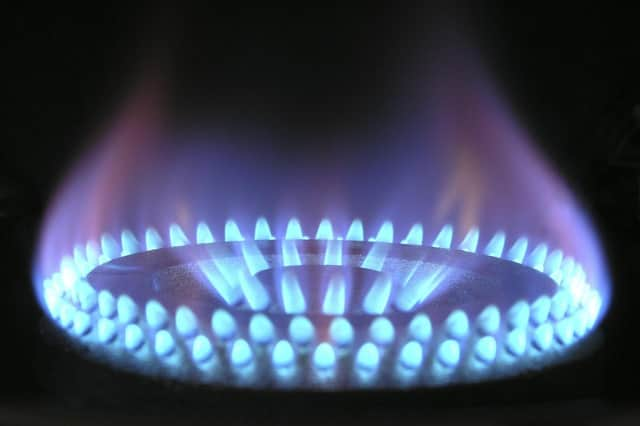Warning over dangers of alternative heating and cooking methods


Advice Direct Scotland, which runs the national advice services consumeradvice.scot and energyadvice.scot on behalf of the Scottish Government, is launching a new energy safety campaign.The charity has joined forces with the Scottish Fire and Rescue Service and RoSPA (the Royal Society for the Prevention of Accidents), to offer guidance to households struggling with soaring energy bills.It follows dangerous “cost-cutting hacks" circulated on social media including a makeshift heating device fashioned out of terracotta pots and tealights.People have also been reminded about the risks of accidental house fires and carbon monoxide poisoning by cooking with barbecues and camping stoves indoors.
The #energy23 campaign, which runs until Sunday, also offers vital safety tips on electric blankets, hot water bottles, microwaveable warmers and soft toys.Alongside this households are being urged to be careful when purchasing portable heaters and other electrical items as counterfeit goods are more likely to contain sub-standard parts that could cause a fire or an electric shock.
Advertisement
Hide AdAdvertisement
Hide AdAs well as giving consumer advice, Advice Direct Scotland can offer practical support to people who need help with their energy bills through its energyadvice.scot service.
This includes making referrals to sources of support such as the Scottish Government’s Home Heating Support Fund, which seeks to provide financial relief to energy consumers who are experiencing significant financial hardship or are rationing energy to get by.
Conor Forbes, Advice Direct Scotland policy director, said: “With the cost-of-living crisis making things tighter financially for Scottish households, many of us will be seeking ways to reduce costs and save money this winter.“However, this should not be at the expense of staying safe when it comes to lighting, heating and eating in our homes. It’s important to be aware of the safety issues related to electrical items, and to ensure we are only purchasing products that meet manufacturing and safety standards.“Untested, and unregulated methods of keeping warm can cause fires.“If you are rationing energy to get by, or to afford other things, reaching out for support is important.“Advice Direct Scotland offers a range of services that can assist and our team is on hand to help Scots with free, practical and impartial advice.”
Key safety tips include:-
If using candles, be extra vigilant. Don’t leave lit flames unattended, especially with children and pets around. Keep candles out of reach of children and pets, and away from loose clothing, curtains and other furnishings that can catch fire.
Advertisement
Hide AdAdvertisement
Hide AdIf using electronic candles with small button batteries, keep these out of the reach of children, as these present choking hazards. They can also cause irreversible damage and even death if swallowed.
If using electric blankets, make sure wires are in good condition and undamaged. Unplug blankets before you get into bed, unless it has a thermostat control for safe all-night use. If your blanket gets wet, don’t use it and never switch it on to dry it. Store electric blankets flat, rolled up or loosely folded to prevent damaging the internal wiring.
Check your hot water bottle for any signs of wear and tear and if there is any damage to the rubber or to the seals, dispose of it immediately. It is recommended that hot water bottles are replaced at least every three years.
Scottish Fire and Rescue Service Area Commander for Prevention and Protection, David Dourley, said: “Keeping people safe is our priority and we do not want anyone to unintentionally put themselves at risk from accidental fires or carbon monoxide poisoning in the home because of changing behaviours linked to the cost-of-living.“Firefighters can provide Home Fire Safety Visits to the most vulnerable people, particularly those that are over 50 who smoke, and who have either mobility issues or use medical oxygen or live alone.“You can help arrange a visit for someone you know.”Elizabeth Lumsden, community safety manager with RoSPA, added: “With the cost-of-living crisis and higher costs of energy and other goods and services, saving money is on everyone’s mind as they seek to get by on a daily basis with heating their homes and cooking food.“However, we all need to be really wary and on the lookout for sub-standard products, that could result in life-changing or even life-threatening injuries to ourselves and our loved ones.“This campaign highlights the issues we all face and will help us to make informed decisions to keep us safe.”